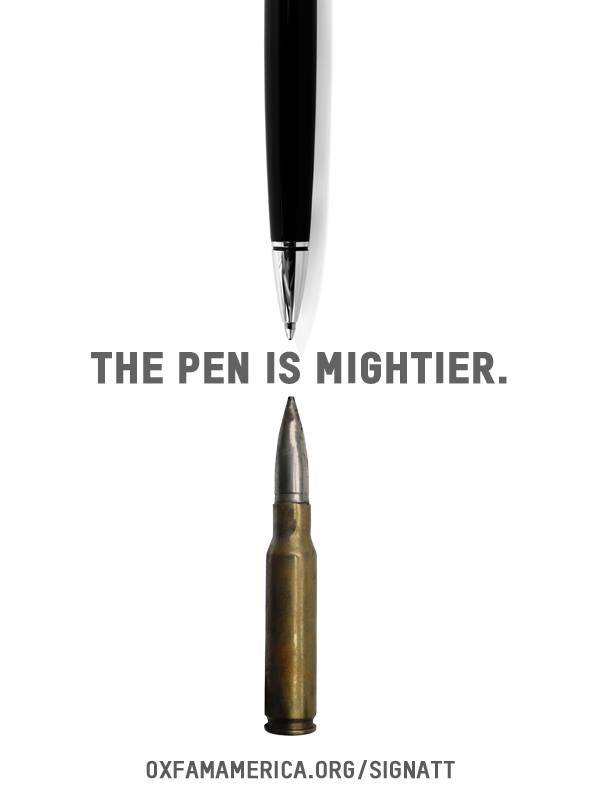Over sixty nations sign Arms Trade Treaty, US soon to follow
Oxfam celebrates a historic day at the United Nations
“The world has come together and said ‘Enough!’ to unscrupulous arms dealers, dictators and human rights abusers. We have a clear message. Your days of easy access to weapons and ammunition are over. The world is watching, and the world will hold you to account.” ~Oxfam’s Anna MacDonald today at the the UN gathering of foreign ministers and senior ambassadors
Earlier today over 60 countries took the stage at the United Nations and signed the Arms Trade Treaty. The Arms Trade Treaty is the first internationally-binding agreement to regulate the $85 billion annual trade in arms and ammunition. If implemented rigorously, the treaty will transform the global arms trade by requiring states to put human rights and humanitarian law before profits when making arms trade decisions. Major arms exporters such as Germany, the United Kingdom, and France all signed the treaty. We expect many more countries, possibly over 100, to join before the end of the year.
 The United States was not able to sign today, but Secretary of State John Kerry put out a strong statement welcoming the treaty and committing the United States to sign in the very near future.
The United States was not able to sign today, but Secretary of State John Kerry put out a strong statement welcoming the treaty and committing the United States to sign in the very near future.
The Arms Trade Treaty was approved by the United Nations General Assembly on April 2, 2013 and it opened for signature today–two months later. This proved too short of a period for some countries to complete their internal review and for all countries to agree on the translations of the text.
Oxfam and our allies pushed the United States to be one of the first countries to sign the treaty. Unfortunately that did not happen. However, contrary to some media reports and commentaries, the reason the US could not sign was technical rather than political. It seems crazy, but there are differences in the translations of the treaty when the English base text was translated into different languages. The US did not feel comfortable signing the treaty before these differences were reconciled and authenticated.
The US approach is not surprising as the US takes its treaty obligations very seriously; the US will not normally sign a treaty when the obligations of all parties are not crystal clear. This process of reconciliation will be completed on August 28, 2013, and we expect the US to sign the treaty within weeks of that date.
The US is not the only treaty supporter to not sign the treaty today. Kenya, for example, has been a leader of the UN process toward an ATT since its inception in 2006 and was not prepared to sign today. Still, the absence of these signatures does not take away from today’s historic significance.
But now that we have the words on the paper, we need the action on the ground. The treaty will only be as strong as the commitment of countries to implement its provisions. Oxfam and our allies are not going away, and we will continue to pressure all governments to sign the agreement and rigorously implement its provisions.